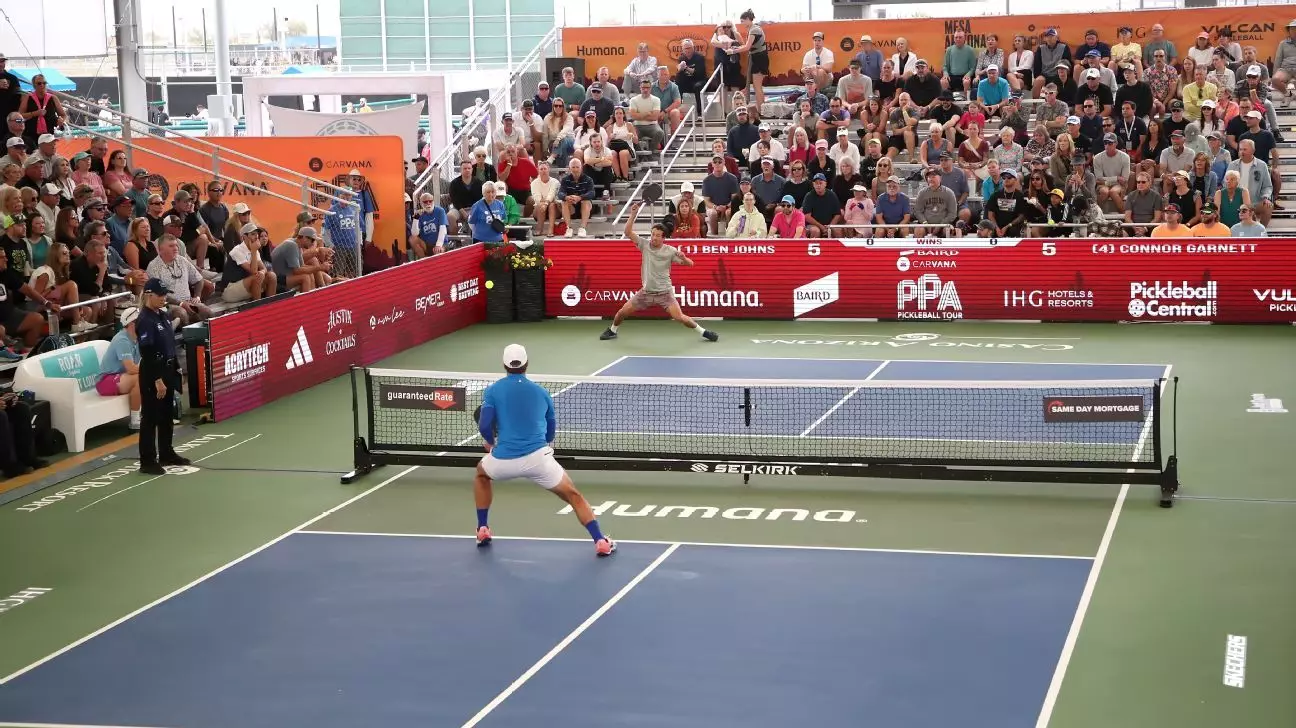The recent establishment of the World Pickleball Players Association (WPPA) signifies a watershed moment in the sport’s history. It’s not merely an organizational milestone but a powerful assertion of player agency in a rapidly expanding sport. Unlike previous ad hoc councils and half-hearted efforts, the WPPA signals a decisive shift toward genuine player empowerment. This development suggests that top-tier athletes recognize the importance of having a collective voice that can influence standards, safety, and fairness — key elements that often get sidelined by commercial interests.
This movement hints at a broader cultural change: athletes demanding respect, transparency, and fairness rather than accepting the status quo. The formation of the WPPA is, in many ways, a response to a pivotal realization among players that their collective strength can bring meaningful change. It is also a statement of confidence; players want their sport to mature on their terms, focusing on sustainability and athlete well-being rather than just immediate profits. This truly dynamic shift will redefine the sport’s future, positioning players as key stakeholders rather than commodities.
Player-Centric Governance: Challenging the Existing Power Structure
What sets the WPPA apart is its explicit focus on independence and self-governance. Currently, pickleball players are classified as independent contractors, which limits their leverage and often leaves them vulnerable to the whims of tour operators and sponsors. The establishment of an autonomous player organization challenges this model by advocating for minimum standards in compensation, safety, and scheduling, regardless of ranking or popularity.
The choice to model the WPPA after entities like the Professional Tennis Players Association (PTPA) rather than traditional unions highlights a strategic approach. This indicates a desire for influence rather than outright control, which aligns more closely with the independence that players seek. It’s a pragmatic move in a sport that’s still evolving professionally and commercially. The goal is to create a platform where all players, from top-ranked pros to dedicated amateurs, are treated fairly and have a say in the sport’s direction.
Crucially, this grassroots effort counters the historical tendency of sports organizations to neglect the individual needs of athletes. It echoes a broader societal shift: athletes no longer want to be passive recipients but active architects of their careers. The WPPA’s governance structure, with a seven-member player board, underscores a commitment to democratic decision-making, transparency, and shared responsibility.
Beyond the Playing Court: Cultivating a Sustainable Future
The significance of this movement extends beyond immediate issues like rankings or scheduling. It addresses the core question of what kind of sport pickleball aspires to become. Its explosive growth over recent years has created financial opportunities for players, sometimes earning hundreds of thousands of dollars. However, prosperity without structure breeds instability. The WPPA aims to embed sustainability by advocating for standardized practices that benefit players and elevate the sport’s legitimacy.
This initiative also challenges the existing power dynamics, encouraging tour operators and organizers to collaborate rather than dominate. The mention that the WPPA does not seek conflict but collaboration indicates a strategic vision for growth rooted in mutual respect. The hope is that by establishing baseline standards, the sport will attract more serious athletes, sponsors, and audiences — all vital for long-term success.
Moreover, the involvement of organizations like Sports Solidarity, led by former baseball unionist Harry Marino, highlights a global perspective on athlete rights. It positions pickleball not just as a recreational pastime but as a professional sport deserving of the same respect, protections, and organizational structure seen in established sports leagues.
Power and Responsibility: Shaping a Resilient and Fair Future
The formation of the WPPA signals that the players are no longer content to accept a passive role in their careers. Instead, they are asserting their right to influence key issues that directly impact their livelihood and health. From safety protocols to ranking systems, the issues at stake are fundamental to the sport’s integrity.
Historically, athletes in emerging sports have faced similar challenges—balancing commercialization with fair treatment. The success of the WPPA hinges on its ability to navigate this delicate balance: advocating for player rights without alienating tour organizers or sponsors. By setting clear minimum standards and fostering open dialogue, the association positions itself as a champion for consistent progress.
The broader sports community recognizes this movement’s importance. The PTPA’s public support underscores a shared understanding that athletes’ voices must be heard independently of organizational interference. If the WPPA can translate these principles into tangible improvements, it will likely set a precedent for other emerging sports to follow—a testament to the power of collective athlete action.
The rise of the WPPA represents more than a structural change; it embodies a shift toward a future where athletes are seen as vital stakeholders capable of guiding their sport responsibly. It challenges the longstanding notions of passive participation and opens the door for a more equitable, resilient, and player-centered universe of professional pickleball.

